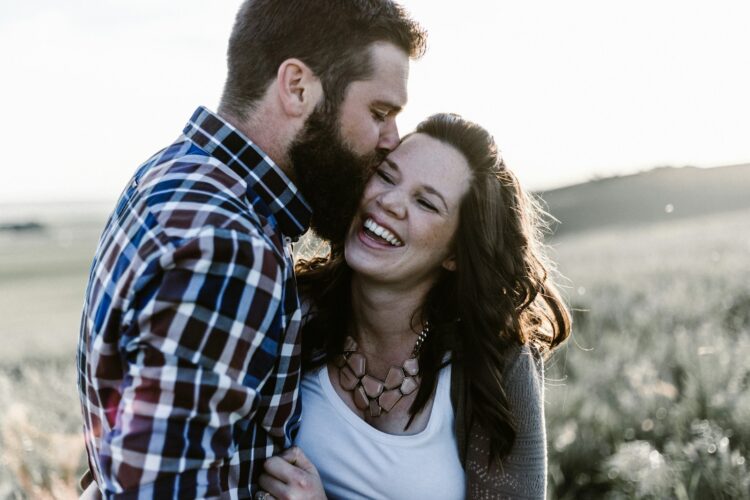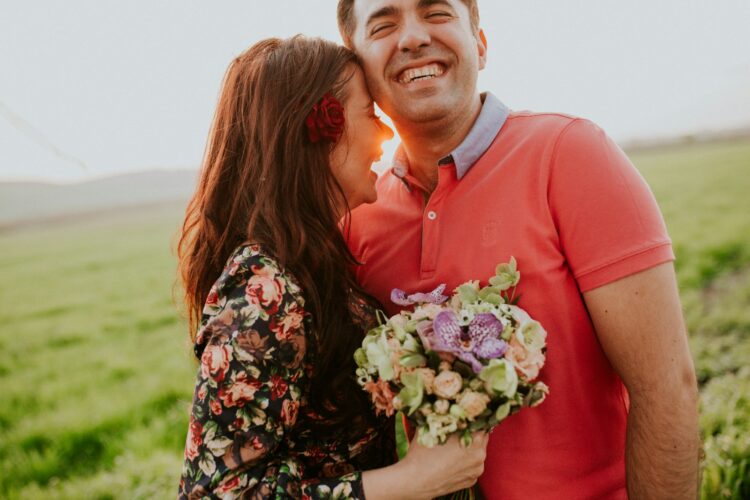
When people talk about relationships, they often focus on red flags—what to avoid, what to run from. But knowing what to look for in a good person is just as important. Not all green flags are loud or obvious. Some are quiet habits, subtle reactions, or things that make you feel safe without knowing why. Here are 15 green flags that don’t get enough attention—but should.
They remember the small stuff.

They don’t wait for reminders. You say something once—maybe you’re tired, maybe you love peanut butter cups—and days later, it shows up. No announcement, no “look what I did.” It’s just there. It was obvious. They’re not trying to impress you. They just listen. Not the kind of listening that nods. The kind that holds onto things quietly and brings them back when it matters.
They don’t mind being wrong.

They don’t take things personally. If you tell them something they missed or didn’t see, they listen. They ask questions. They want to understand, not argue. There’s no awkward pause, no need to tiptoe. You can talk without turning it into a fight. They care more about getting it right than being right—and that makes everything feel easier.
They don’t disappear when things get heavy.

Some people show up when it’s fun, then vanish when real life hits. But not them. They stay through uncomfortable talks, bad moods, and awkward silence. They may not have the perfect response, but they don’t check out. Their presence becomes the comfort. They’re not scared off by messy moments—they understand that love includes the boring, the hard, and the uncertain, too.
They’re kind to people they don’t need.

You learn a lot by watching how someone treats a stranger. Not because they have to, but because they want to. A warm thank you to the delivery person. A smile for someone cleaning the floors. That kind of kindness speaks volumes. It’s not performative—it’s natural. And it tells you that empathy isn’t something they turn on for you. It’s just part of who they are.
They let you have space.

You say you need a night to yourself, and they don’t make you feel guilty. They get it. You don’t need to explain why or overthink it. They just give you the room to breathe. That level of respect creates safety. You don’t feel smothered, and you don’t fear backlash. It shows they’re secure enough in themselves to give you what you need without making it about them.
They talk before things blow up.

They don’t pretend everything’s fine until it suddenly isn’t. If something bothers them, they bring it up early. Calmly. Clearly. They don’t stew or explode. They’re not looking to win—just to understand and be understood. That makes conflict feel less scary. You know where you stand, and you know a small misunderstanding won’t quietly grow into a dealbreaker while you’re not looking.
They laugh at themselves.

They mess up and don’t make a big deal out of it. Maybe they spill something or say the wrong word—but instead of getting embarrassed, they just laugh. No long excuses. No stress. It feels easy to be around them because they’re okay with being human. That kind of attitude makes you relax, too. You stop worrying about being perfect and just feel okay being yourself.
They don’t try to “win” arguments.

When you disagree, they don’t try to win or prove a point. They stay calm and just want to work things out. They don’t raise their voice or throw past stuff at you. It’s not about being right—it’s about staying close. You can talk without it turning into a fight. That kind of steady, respectful way of handling things makes you feel safe, even when you don’t see things the same way.
They speak well of people who aren’t around.

They don’t badmouth their ex. They don’t gossip just to fill space. Even when someone hurts them, they talk about it with fairness. That tells you they process their feelings instead of spreading them around. It shows you how they’ll treat you when you’re not in the room. Respect behind your back matters as much as love to your face.
They admit what they don’t know.

They won’t fake an answer to seem smart or talk over you when they’re unsure. They say, “I don’t know,” and they mean it. Then they ask. They learn. That kind of curiosity feels refreshing. You’re not being tested. You’re being explored, gently. They’re not afraid of questions or change, and that makes space for real conversations, not just exchanges of pre-rehearsed opinions.
They support you without taking over.

You share an idea, and they light up. Not because they’re planning it for you, but because they believe in it. They ask how they can help. They cheer you on without trying to take the wheel. You still feel in charge of your own life—just with someone steady beside you. That kind of quiet support builds confidence without pressure. It’s rare, but it sticks with you.
They notice your mood shifts.

You don’t have to say anything. Maybe you’re a little quieter than usual, or you laugh less at the usual stuff. And they notice. They don’t pry—they just check-in. “Rough day? Want to talk?” That soft awareness makes you feel seen. You’re not a project to fix. You’re just someone they care enough about to notice when the energy shifts.
They respect your time.

If they say they’ll be there, they are. If they’re late, they’ll let you know. Plans matter to them because you matter. They don’t double-book. They don’t bail without reason. You stop feeling like a backup plan. That reliability might sound boring to some, but it’s the base layer for every lasting connection. Knowing you’re not an afterthought feels like a kind of peace.
They want to grow with you.

They’re not stuck in “this is how I am.” They ask questions like, “What helps you feel supported?” and really listen. When something’s off, they want to get better—not to perform, but to connect. You see them adjusting, slowly, genuinely. Not changing who they are, but expanding for the sake of something good. That kind of shared effort feels rare and incredibly valuable.
You feel safe telling the truth.

You don’t rehearse what you’re about to say. You don’t soften your opinions or pretend to be fine. Around them, honesty doesn’t feel risky. They don’t punish you for being vulnerable. They meet it with presence, not judgment. That kind of space—where you can say the thing and not be afraid of losing everything—is where real trust begins.

